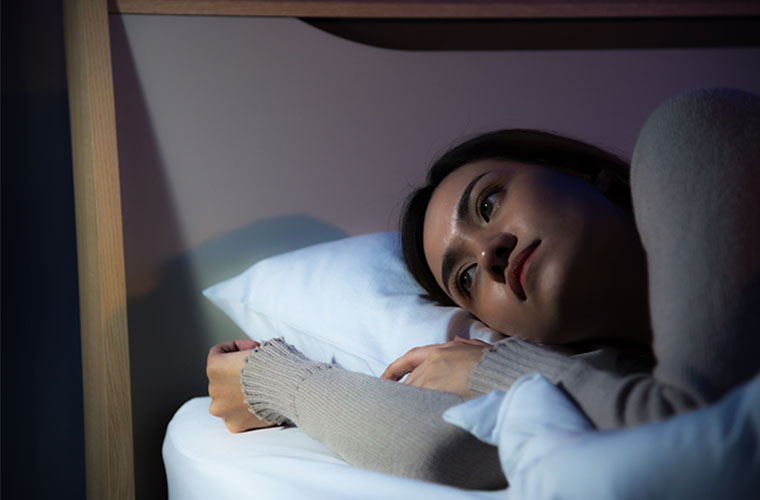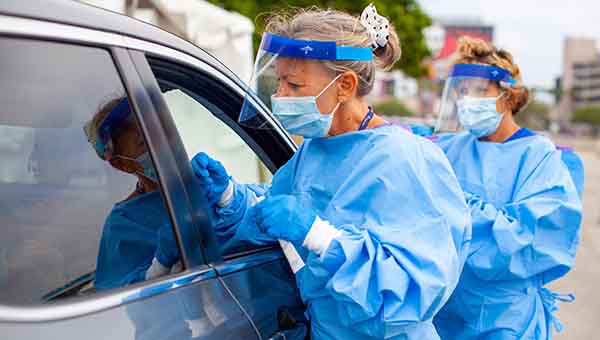Getting Better Sleep During Stressful Times

Almost 40 years in the sleep business has taught Marietta Bibbs a lot about the ways that people mess up the opportunity for a good night’s sleep. They stay on their electronic devices until bedtime, consume caffeine or heavy meals too late in the day, nap in the afternoon then wonder why they can’t fall asleep at night.
However, these days, something else may be disrupting their sleep: anxiety and worry about the coronavirus pandemic and its impacts on their lives.
These are not normal times, and many Americans are reporting sleep difficulties and odd or disturbing dreams. Bibbs, who is the system manager and clinical research coordinator for BayCare’s Sleep Disorders Services, has been hearing about three categories of sleep-related effects since the arrival of the coronavirus:
- Some people with histories of sleep problems say they actually are sleeping better since they began isolating at home and/or working from home. “They say they can be more flexible with their schedule. They have more control over when they get up and when they go to bed,” Bibbs said.
- Other people report feeling a lack of control and “have let stress get the best of them,” Bibbs said. These may be people who watch the news a lot and focus on the rising number of virus cases and deaths. They may have financial pressures as well.
- The third group is people who are experiencing circadian rhythm disorders because they are spending so much time indoors and not getting enough exposure to daylight. Human beings are biologically diurnal – their internal clock is set by the daily cycle of daylight and darkness, Bibbs said. When they are not exposed to enough daylight, their natural cycle of wakefulness and sleepiness – their circadian rhythm – is disrupted.
Tips for a Better Night’s Sleep
During these especially stressful times, Bibbs said you need to make sure that you are practicing “good sleep hygiene.” She offers these tips for getting a better night’s sleep:
- Your work life, social life and family life may have changed because of the coronavirus but try to maintain something close to the sleep/wake schedule you had during normal times.
- Get the proper amount of sleep – seven to eight hours a night for an adult.
- Avoid caffeine, nicotine and alcohol, all of which disturb sleep.
- Get exercise, but not within six hours of bedtime.
- Napping is okay, but only for an hour or less and not after 3 p.m.
- Get at least some exposure to natural light during the day. Doing so will help regulate your body clock. Sunlight also can ease anxiety and depression, Bibbs said.
- Establish a calming bedtime routine to follow every night. (It was good for your children, and it’s good for you too.) At a specific time, stop answering your phone. Turn off the movies and video games. Avoid using your computer or tablet, which emit sleep-disrupting blue light, or use the night shift setting if your device has it. This is a time for quiet, low-light activities.
- Still can’t sleep? Don’t stay in bed tossing and turning. Get up. Go back to bed only when you feel sleepy.
- If you believe that anxiety about the coronavirus may be the source of your sleep problems, try focusing on tasks rather than on how you are feeling each day.
If you follow these tips and still struggle to sleep, talk with your doctor, Bibbs advised. Consider asking for a referral to a sleep disorders specialist. Losing sleep night after night will only make these tough times tougher.
“People need to make sleep a priority in their lives,” Bibbs said.
BayCare operates nine Sleep Disorders Centers throughout the Tampa Bay area. For more information, click here.


